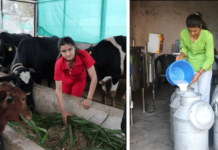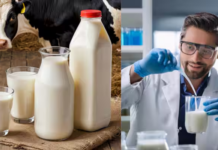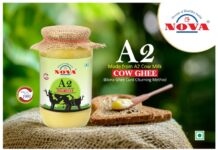New Delhi, August 24, 2020: With India being under a nationwide lockdown during March to June, dairy producers found themselves with high milk supplies even while the overall consumption fell and demand dropped. However, dairy manufacturers used the surplus supply to manufacture skimmed milk powder and butter instead, a report said on Monday. “Additional procurement of milk by dairy cooperatives during the period of Q1FY21 led to conversion of excessive milk into surplus stocks of SMP and butter,” a CARE Ratings report said. Skimmed milk powder is used as a substitute of milk and has a longer shelf life than regular milk.
The production of SMP rose from 51,153 tonnes in Q1FY20 to 69,276 tonnes in Q1FY21, marking a 35% increase on-year. The production of butter also shot up from 20,670 tonnes in Q1FY20 to 26,066 tonnes in Q1FY21, marking a 26% rise according to the reports published in financialexpress.com.
Surplus milk supplies amid lockdown EXPLAINED
India had imposed a complete lockdown starting 25th March 2020 to curb the spread of coronavirus due to which, milk demand from bulk consumers including hotels, restaurants and cafes (hoReCa), tea stalls, sweet shops etc were completely shut and hence the dairy industry initially witnessed a sharp contraction in demand. Moreover, milk supplies were also hindered due to lack of clarity on lockdown regulations, coupled with supply chain disruption.
However, dairy cooperatives continued to procure milk from dairy farmers which led to oversupply of milk. Cooperatives “procured milk not only from their producer members but also from dairy farmers that before lockdown were supplying milk to private dairies and unorganised players”, the report said. In fact, one of the top players in the market said that it sourced around 30% more milk compared to prior months. Cooperatives continued to purchase milk even amid demand slowdown due to their commitment to source milk. On the other hand, private, small and unorganised dairy players either completely halted their operations or slashed them.
Moreover, sales of categories such as ice cream also borne the brunt of coronavirus with consumers avoiding consumption of cold products during the pandemic.



































